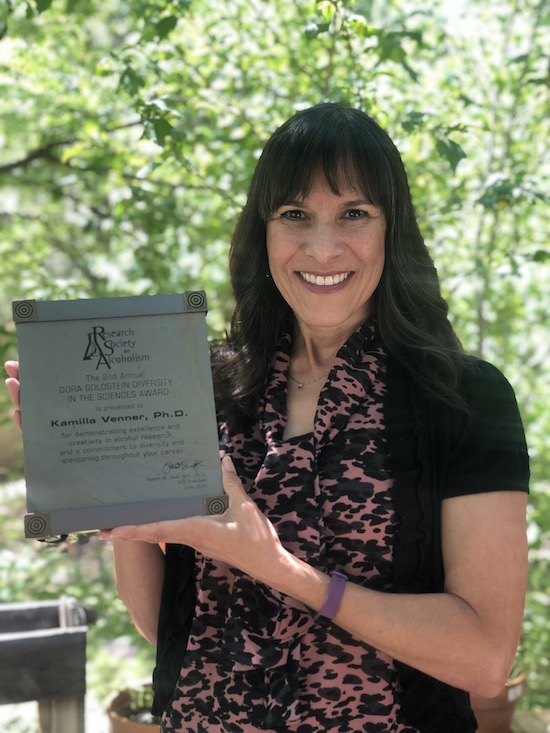STEM Shoutout: Dr. Kamilla Venner
UNM psychology assistant professor wins Dora Goldstein award
Dr. Kamilla Venner, an assistant professor at the University of New Mexico, and research assistant at UNM’s Center on Alcoholism, Substance Abuse, and Addictions (CASAA), was recently awarded the second annual Dora Goldstein Diversity in Sciences Award for the year 2020.
Venner received the award for her excellence and creativity in alcohol research as well as her commitment to diversity and mentoring throughout her career.
“I am committed to furthering research with diverse populations, improving culturally effective treatment, and increasing diversity in academia,” Venner said.
Her accomplishments include: conducting the second randomized controlled trial of behavioral addiction treatment with American Indian/Alaska Native (AI/AN) people, mentoring four graduate clinical psychology students from underrepresented ethnocultural groups, teaching a graduate clinical psychology course on diversity and an undergraduate course on cultural psychology, and being a co-faculty mentor for the UNM’s graduate student-led Diversity Organization (DO!) and for our department’s Diversity Specialty Clinic.
Venner’s research aims to improve addiction measures and treatment with underserved populations to help achieve health equity.
“I have tested the cross-cultural applicability of addictions concepts and measures, such as cultural identity, spirituality, and the diagnosis of alcohol use disorder,” Venner said.
Venner’s research will contribute to improving health among AI/AN communities by improving cultural adaptations of evidence-based addiction treatment. Venner said she believes these developments in addiction treatment will translate to non-Hispanic White populations because the majority of people in the United States are religious or believe in a spiritual realm but evidence-based treatments do not explicitly include spiritual or religious considerations.
“This award is such an honor as Dora Goldstein was a pioneer as she entered the first medical student class of Harvard to include female students, conducted cutting edge research, and was devoted to mentoring other female students in the medical field by going way beyond what usual mentoring often includes,” Venner said.

